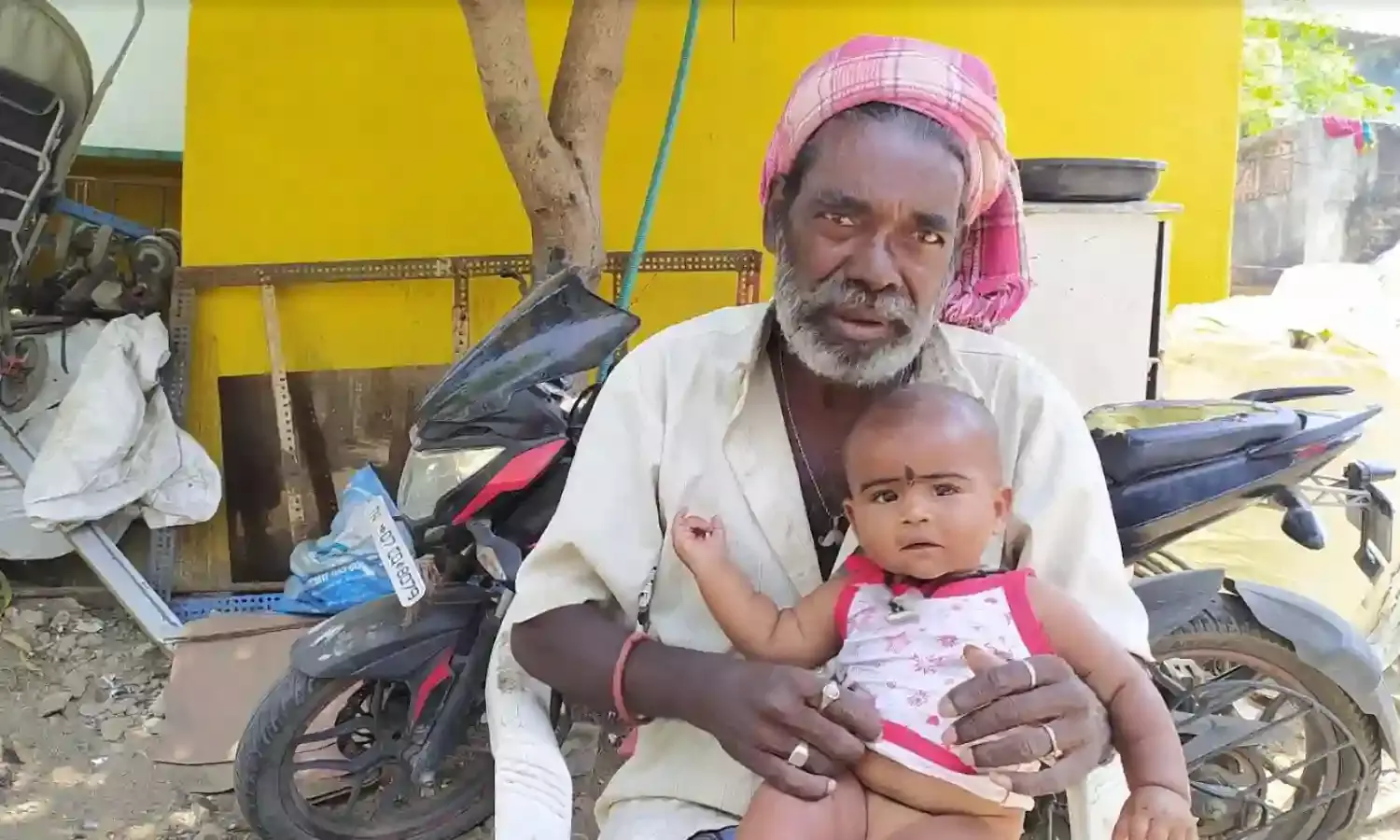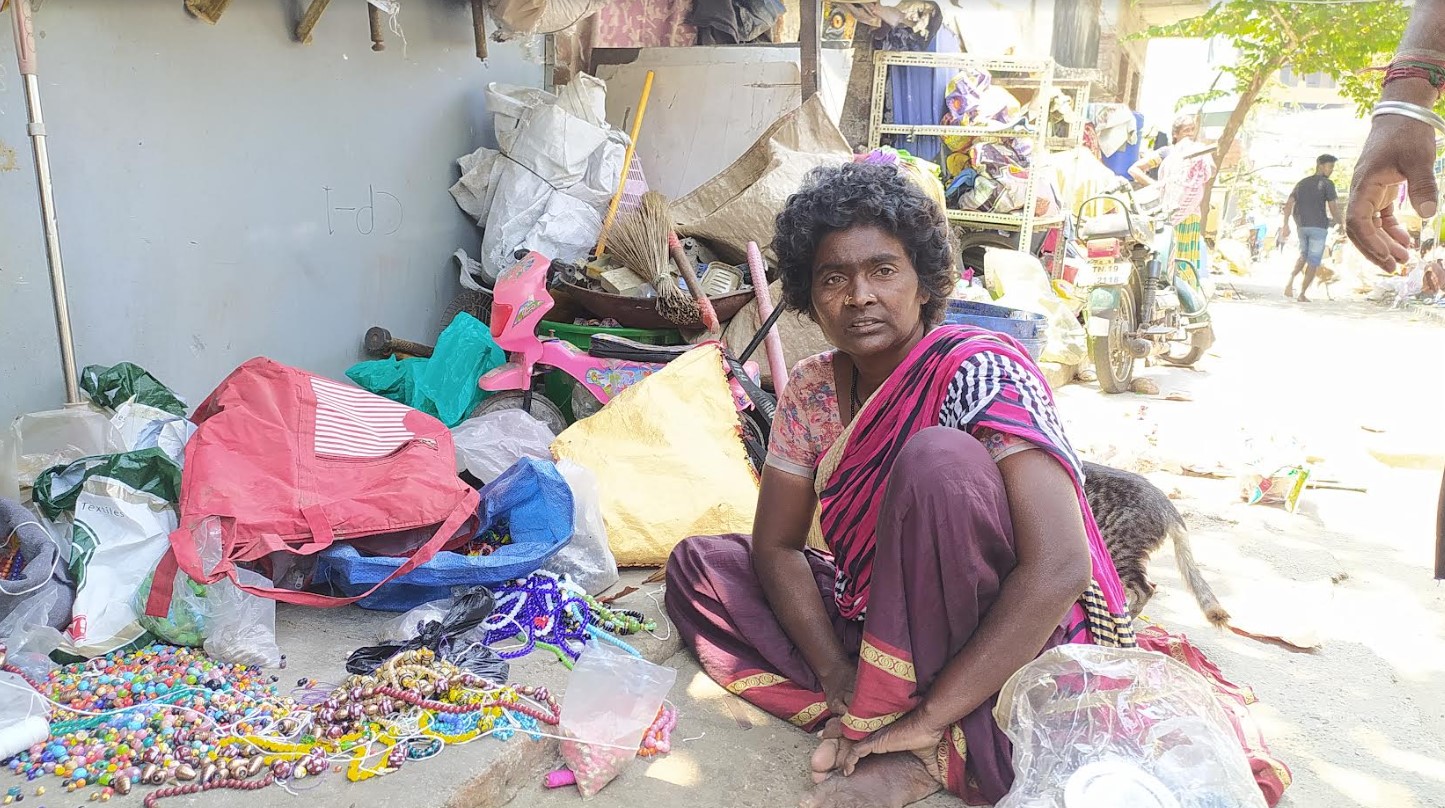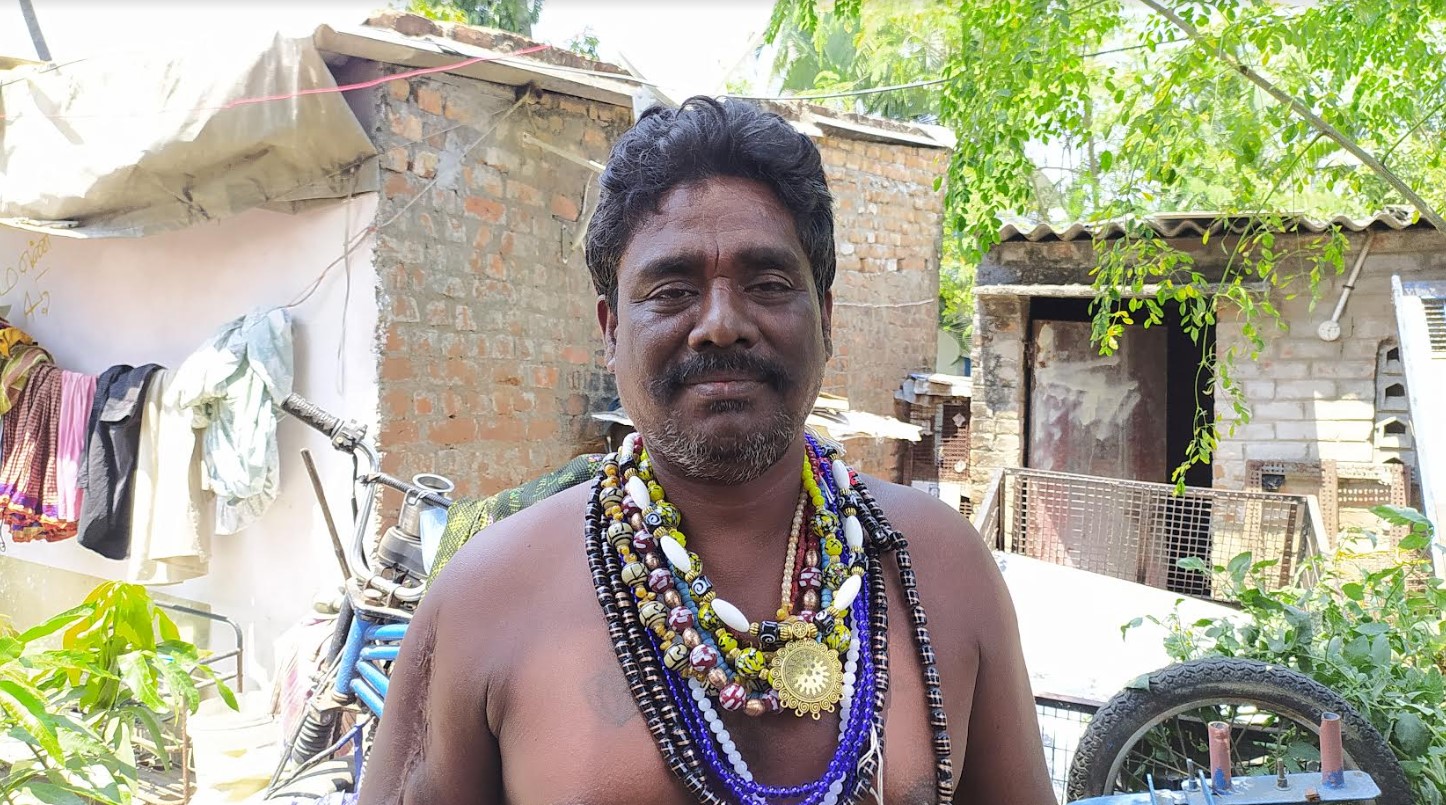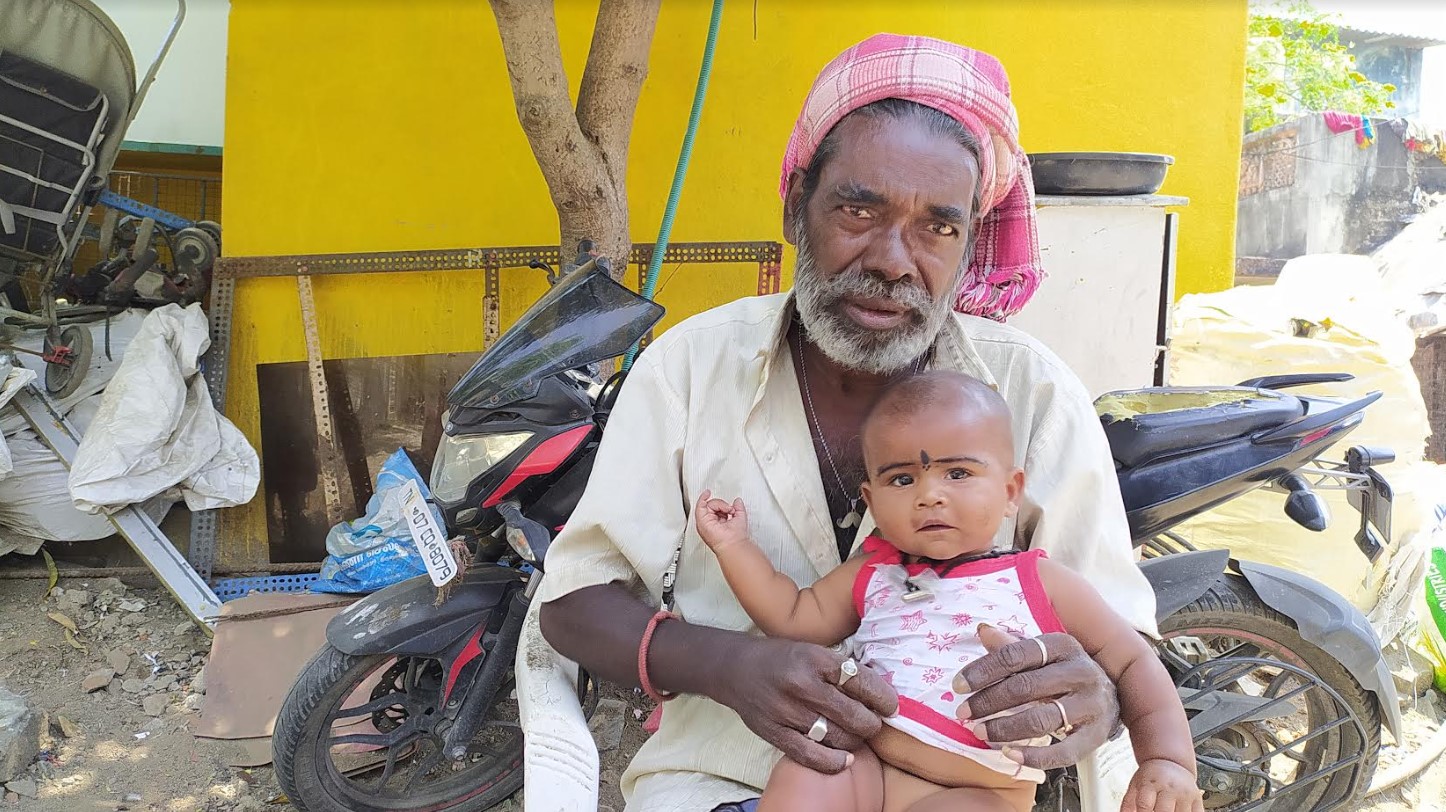The Narikuravars’ Fight for Their Rights
A community’s voice has been unheard

Soundarya, a 20-year-old Narikuravar woman goes through her dust-layered documents to make sure her birth certificates and other identity proofs are still intact. She was going to apply for an Aadhar card, the unique identification that would enable any Indian to avail governmental grants. However, there was a confusion whether she should be listed under the Most Backward Classes (MBC) or Scheduled Tribes (ST).
The Narikuravars are an indigenous, semi-nomadic tribal community living in Tamil Nadu. The tribe was one of the many that were notified as ‘criminal’ during colonial times. They were decriminalised under the Denotified Tribes Act, 1952.
The big problem for Soundarya and others of her community is whether their tribe should be classified under MBC or ST. Either of the two designations would make the tribe eligible for vastly different benefits under the state and union governments’ schemes for historically disadvantaged people. In Tamil Nadu, the tribe is classified as MBC. But sub-castes within the Narikuravars are categorised ST. And that is the problem.
The Lok Sabha, in May 2016, passed a Bill listing Narikuravars as ST. But the Bill is yet to become law until the President of India signs it. More than four years have passed since the Bill was passed, but that hasn’t happened yet.

“Most of our people are undocumented citizens of this country, as we were travelling all our life. But the changing culture forces us to remain in a stable place,” said Soundarya adding, “it’s mandatory for us to get documented and avail all the benefits of being a citizen.”
“Ever since we heard we are going to be listed under the ST category, we were waiting for that to become a reality,” said Thangaraj, 28, a Narikuravar community member. “We thought we were going to get educated like the others and work in a decent place, but things are even worse these days,” he added.
According to Sekar, one of the Narikuravar community leaders, “we have been trying to get our birth certificates and community certificates since the approval of the Bill, but the officials do not respond.”
The Narikuravar community at Periyar Nagar in Thiruvanmiyur, Chennai, is unaware of how to get an identification certificate or a birth certificate. As a result of which many children do not have this basic document. Malligai, 45, said that even though she has been married for more than 15 years, her 10-year-old son does not have a birth certificate due to the lack of documentation of her marriage. “Since many of our people are not aware of this documentation process, we struggle at every stage of life to get necessities like ration from PDS shops,” said Malligai, “it has become a huge problem for our children’s future too.”
The struggle for enlisting Narikuravars as STs began in 1965, when the Lokur Committee recommended their inclusion. in the 1980s, the then-Chief Minister of Tamil Nadu, M.G. Ramachandran, proposed to the Union government to bring Narikuravars under the ST list. After several protests, the United Progressive Alliance (UPA) government in 2013 passed a Bill to include the community in the ST list.

The Lokur Committee report stated that a tribe must live in a distinct area, have a distinctive culture, and exhibit primitive traits to be included in the Scheduled Tribes (ST) list. In addition, they must display a shyness of contact with the other communities at large and socio-economic and educational backwardness.
The Narikuravars do not satisfy many of these pre-conditions. Their nomadic culture, which allows them to travel, stands against the report’s perspective on spatial organisation of STs. Moreover, their habit of selling beads and other ornaments to the public prevents them from displaying shyness.
Captain Durai, convener and President of the Tribal Welfare Association in Tamil Nadu, said that the name ‘Narikuravars’ itself should be subject to scrutiny. “The misrepresentation of this community as ‘Narikuravars’ prevents them from getting included in the ST list,” he added. “Their actual name is ‘Kuruvikarargal’ or ‘Narikarargal’ – bird-hunters or fox-hunters – who migrated from the northern parts of the country.”
He mentioned the various names under which they are recognised in different states. “They are called ‘Nakkal’ in Pondicherry and Karnataka, ‘Junglewala’ in Maharashtra, and ‘Vagrivala’ in other parts of the country,” said Durai.
He emphasised that it’s the confusion in the naming of the community which prevents them to be listed under the ST list, because the same community in other states is given the ST status.
In the name Narikuravars, the ‘Kuravas’ has been taken from a Tamil word which denotes a particular community – Kuravas – in Tamil Nadu, according to Durai. “In the Tamil Nadu gazette, their community has been registered as ‘Narikuravas’, whereas in the Tamil Nadu revenue department the same has been mentioned as ‘Kurukarars’,” he added.
Owing to this confusion they are being denied any type of identification of their community. Baskar, a member of the Tribal Welfare Association, said that the organisation met the secretary of the National Commission of Scheduled Tribes to rectify this problem to allow people to avail the benefits.
The tribals who were expecting a better education and employment opportunities are baffled now. Vikram, 21, expressed his despair over how the lack of basic education landed him a job as a sanitation worker in the Greater Chennai Corporation (GCC). “I could not proceed to higher education due to the denial of ST status to us,” he said “the social stigma attached to our community still allows people to discriminate against us.”
In a 2015 letter, Minister of State Pon. Radhakrishnan told the Tribal Affairs Ministry that the Narikuravar Community is “nomadic, extremely poor and one of the most vulnerable communities in Tamil Nadu, and a meagre 0.02% are graduates.”
“Children of this community go to school, but there are many hindrances they come across to complete their education,” said T.Saraswathi from Asha for Education, an NGO working with the community. “Many of them are still not aware of getting a proper education, maybe, when some of their kids enter college owing to their reservation, they can get keen on educating their children,” she added.
According to an article published by The Hindu Business Line in 2017, there are about 30,000 people belonging to the community in the state which is less than 0.1 per cent of its population. Since they are classified under the MBC list, they have been competing with 41 other communities, which are comparatively higher in socio-economic status and political representation.
According to the Government of India Planning Commission document on poverty estimates for the year 2009-2010, the percentage of STs below the poverty line in rural India was 47.4 per cent, but that of rural Other Backward Castes was 31.9 per cent. Similarly in urban India, the STs poverty line was 30.4 percent against the OBS’s 24.3 percent. This shows that classifying Narikuravars as OBCs leads to the assumption that the Narikuravars as OBCs are above the poverty line when compared to the communities under STs.
“Since they are under the MBC list, they have to compete with other castes like Vanniyars - a prevalent caste in northern Tamil Nadu, who are now socially and economically more privileged than them,” said Dr Sumathi, Head of the Department of Anthropology, Madras University. “The complications in providing them with the status are being reviewed, and we expect that to get rectified,” she added.
Udayakumar, Director, Tribal Research Centre, member of a team from the National Commission for Scheduled Tribes who were delegated to collect evidence and data related to Narikuravar people residing in Tamil Nadu, said, “a team headed by Anant Nayak from National Commission for Scheduled Tribes came recently and we visited most of their places.” He added that they are waiting for the final review team to approve their findings and once they get it finalised, they can present them in the Parliament.
“Even though we are culturally a nomadic community, children want to educate themselves, which can be possible only when we stay in one place,” said Soundarya, adding, “we are ready for the changes to educate our children, but all these complications we face make our life harder.”




